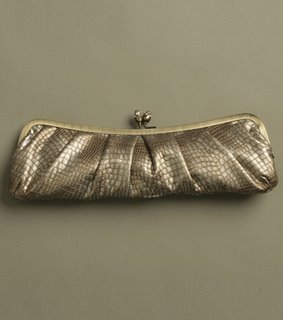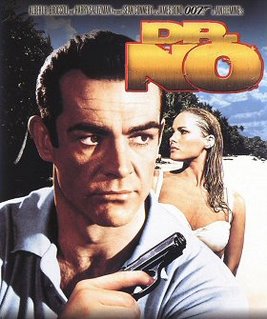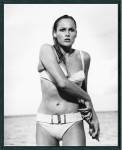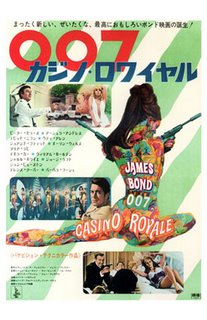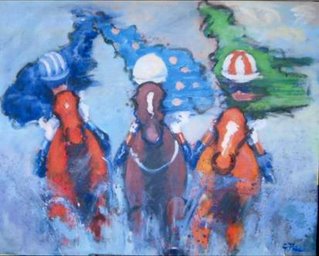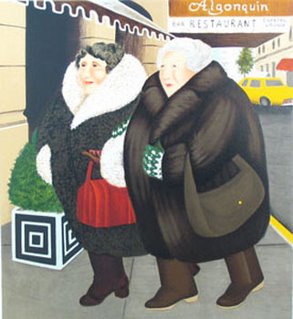
For a fortnight last August, I had an excellent writing "splurge" . I'm not very good at maintaining my splurges ( other things too easily interrupt the flow...sorry, the "splurge" )
However, this short splurge produced 3 short-short stories, two short stories and a longer short story called " Lilly's Diary" which was adapted from something even longer.
I sent " Lilly's Diary" to a competition for a short historical story ( max 5000 wds) run by an Irish Publishing Company ( Fish Publishing) and recently, I was pleased to hear it was shortlisted. Today I hear it's unplaced but it's made me promise myself more " splurges"...
And now I see the wisdom of my father's words ( uttered years ago) when having read a story I wrote at school, he said:"Put it away in a drawer for a week and THEN go back and edit it..." It was good advice; Lilly needs more editing which I shall eventually attempt to do....
" Lilly's Diary" is told in the voice of Lilly Faithfull, a young girl living in a Cheshire village in 1912. Hopefully, it's a glimpse into someone's life, a peep into a setting in time and place. This period of history fascinates me, particularly in relation to women's lives in those early years of the last century. This is Lilly's story:
"Lilly's Diary".
I saw a picture today in the newspaper. I’ll never forget it; the slope of a ship, as it sank.
I write fast. My writing fills the page. My words scrawl across it.
My mother says memories are precious; I should bequeath mine to future generations. I say a string of pearls would be better, or a diamond tiara. Mother smiles; she says one day I’ll realise that she’s right and she goes on smiling while she peels the potatoes. She has great faith in memories. She has great faith in smiles. She has great faith in potatoes.
So now in April 1912, I’m writing my diary. Mother says my great grandchildren will find it in a dusty attic early next century. Their children will sprawl on their laps and marvel. They’ll thrill to the memories of Lilly Ann Faithful. I will, of course, have gone. So I’m writing for Posterity, Dear Reader.
I write fast. Words scrawl.
At school this afternoon, I was pulling faces at Cyril, whispering jokes to Thomas, when suddenly we were plunged into tragedy. Being plunged into tragedy is like falling into a pond or like Alice Liddell must’ve felt when she plunged down her rabbit hole. Those words also mirror what happened to the people in the tragedy; they were, quite literally, plunged into tragedy. And now I feel sorrow for the whole Human Race.
I think I must write about less dreadful things for a few pages. It doesn’t mean that my heart aches any less for those who suffered; it doesn’t mean I no longer think about them. It just means I’m remembering that ordinary things precede tragedies. And ordinary things follow.
My writing fills the page. My words fill my head.
Today my sister Fran and I were late for school. This is rare. We dawdled under a sky thudding with blue; our cold dark schoolroom was not the place to be. We picked flowers from beneath the hedgerow; we spied on a tramp as he drank ale on the towpath. When we arrived, Mr Browning our Headmaster stood at the door marked “ Girls” studying his pocket watch. His eyes were anxious like White Rabbit’s in “Alice in Wonderland”.
“Ladies, at last you’ve graced us with your presence” Mr B’s eyes were marble-blue hard: “Is everything alright at home?” Mr Browning often says that to Kitty whose parents drink all night, and to Cyril, who wets himself at home time and sometimes has bruises on his arms.
“ Everything’s fine, sir” said Fran. We were late once before when we’d fed our hens porridge and bread; they’d coughed so much that Mother said we gave them croup. But Fran was on the ball as usual.
“ Today we’ve been reading Ecclesiastics, sir. We’ve resolved to use its teachings in everyday life. “ My sister simpered like a beautiful doll. I held my breath.
“ And which teachings are these, Frances?” Mr B gently twanged his small cane across his fingers.
Frances beamed. “ I imagine you know them all, sir. I’m not so knowledgeable.”
In school, we heard children starting their Prayers. We heard the scrape of benches as they stood up. We heard Etheline the assistant teacher twirl a few chords on the piano. We heard the clock inside chime nine. We heard children begin to sing “ All things bright and beautiful” in sweet piercing voices, so high that their words almost hurt. But Frances saved the day.
“ Yes, sir, we read Ecclesiastes. We read the bit saying never give a wicked woman liberty to go abroad. We had a wicked neighbour who took liberties. Our mother said she gadded, not abroad, but to other villages. And she came to a bad end.” Fran paused dramatically “ I can’t say how this bad end came; I’d bring tears to your eyes. But this morning, sir, Lily and I realised how splendid the Bible is. It’s a chronicle of all that happens in this world of ours.” Fran beamed “And it’s timeless in its teachings.”
Mr B was bedazzled, unsure what his reaction should be. But he solved this by manoeuvring us through the door into the schoolroom and the children inside turned as one to watch our entrance. Etheline banged strident chords on her piano. Mr B strode to the front of the schoolroom and everyone started the hymn again, singing about a purple-headed mountain with a river running by and strangely, I thought of our mother’s purple tipped breasts, which I saw sometimes if I loitered in her bedroom in the mornings. And then I shivered at the thought and for some unaccountable reason, I sang more lustily than ever.
After the hymn, Mr B, standing before the whole school stared at Frances over the top of his glasses. His watery blue eyes filled and his voice rose with every word.
“ Frances and Lilly were late today, but they’re forgiven. I really have no choice but to forgive, because do you know the reason for this lapse, children?” He raised his eyebrows: “ I wonder, can anyone guess?”
Kitty Brown giggled. Cyril Jones clicked marbles in his trouser pocket. Etheline Sewell, toes pointed inwards, hands clasped together, smiled coyly; I watched a sliver of sunlight pick out glittery strands in her hair. Her adoration for Mr B made her glow, turned her almost beautiful…
“ Well” said Mr B “ I’ll tell you. They were studying the Good Book. They were delayed in the tasks of their day because they chose to peruse wisdom. And Frances will tell us why”
I sidled my clammy hand into Fran’s; surely this would flaw my cocky sister. But Fran drew herself up to her full height (4ft 11 ins), pressing her chest with her long fingers so that they crinkled her newly starched pinafore.
“ The Bible is special, sir.,” said Fran “Our mother says so, as do you and Miss Sewell and everyone at Sunday school. Without the Good Book, we are, quite simply…” Fran peered round at her audience, then continued: “ without it, we are nothing. This morning Lilly and I discovered our priorities”
There was an awed silence in the schoolroom. Etheline gazed up at Mr B, eyelashes fluttering. Fran continued: "Our Family Bible lives in our dresser drawer; we dust it each Sunday. Our birth dates are inscribed on the front page in our mother’s copperplate." And then Fran’s voice fell to a heart stopping whisper: “ And some of our deaths are inscribed there too”
I write fast. My words fill the page; letters shiver, the ink looks very black.
And I shivered at Fran’s words; I remembered my brothers who passed on as babes, the tiny sister we lost. And a collective sigh shivered around the schoolroom, a moan almost, because several children had lost precious little brothers, sweet little sisters. Somewhere, I heard Thomas’s embarrassed laughter.
“Thank you Frances. “ Mr B’s cultivated tones soothed us, like the stroking of ivories on a piano. "And does Mrs Faithful offer any more thoughts on the Bible? I know her to be the most perceptive of women.”
“ Yes, sir, she has many thoughts; in our house, thoughts are my mother’s prerogative.” Frances twinkled, her brightness bounced off every surface in our schoolroom. “ Mother says that the thoughts and stories in the Bible are like a magical looking glass, that they reflect everything that happens in our world. She says the Bible is a looking glass and that’s why it’s special”
Mr B fiddled with his cane. Frances had answers for everything. Etheline bashed out chords on the piano and trilled, “ He who would valiant be” and we all yelled “ ‘gainst all disaster!” as loud as we dared, little knowing then what terrible disaster had befallen the most unfortunate of people…
The hymn finished and there was silence. Everyone cast sidelong glances at Fran. She was Florence Nightingale. She was Queen Victoria. She was Joan of Arc. She was every heroine that had ever been. Then a small voice quivered from amongst the children: "Frances Faithful, you and Lilly like the story of Alice, and lots of other stories too. Is that why you find the Bible so interesting? I think it’s because you like words and characters and places and plots and the Bible has these in abundance”
Everyone turned and stared and gasped as this eloquent voice belonged to Clara Higgins. Clara Higgins never speaks, despite being the richest girl in school with a dining room in her house and a mirror over her sideboard. These are almost unheard of luxuries in our village. Clara continued to speak before a stunned assembly.
“ I’ve read Alice “ she gushed (Clara actually gushed) “ I too think Alice is wonderful. And so is the Queen of Hearts and the Cheshire cat and the Mock Turtle and the Dormouse who falls asleep all the time; he’s like Cyril when Cyril’s stuck on his Tables!”
Goodness, Clara Higgins had made a joke. The whole school tittered, even the Infants who were too little to know what was happening. And then Clara finished: “ And can you all imagine WHAT it’s like to dance a Lobster Quadrille?”
And she twirled round and round and danced out of her place, along a stunned line of children and then she turned and twirled and danced back to her place and everyone stared in amazement.
Clara had spoken. Clara, who was normally silent! Ruby Parker, who bit her nails down to the quick (and had to sit with them in a red inkwell as punishment) turned so suddenly that the ink on her fingers splattered like blood. So Mr B took the bull by the horns (a manoeuvre he frequently stresses as essential in life) and he burst into applause and yelled (Mr B actually yelled):” Well done, Clara Higgins. Well done Clara Higgins for speaking out. Well done for dancing, well done for twirling.”
And we all cheered and voices whirled to the rafters and Clara blushed to her roots. And she smiled for the rest of the day. (And THIS, despite the news we later heard…)
The dreadful news haunts me. I write fast. I hear cries and shouts of those who suffered. I see faces; feel the sense of loss around me. It’s here in my bedroom as I write this diary, as I lie on my bed, as Fran sleeps beside me.
I write fast in my diary. My writing fills the page, my words scrawl across it. I’m thinking about school. I’m thinking about school because it’s a safe place, a predictable place; it’s always there. I’m thinking about the tragedy, hearing voices, the cries, the sea. The sea is unsafe, the sea is unpredictable, but the sea is always there too.
I continue. School is very small. There are fifty children aged between five and fourteen. It sounds a lot but the difference in ages is large and also the children come from a wide area. We’ve two teachers Mr B and Etheline. Sometimes a farmer’s wife called Mrs Potts who smells of damp blankets and lavender water trudges over fields to read us Parables or make tedious raffia mats out of raffia. (Raffia is from palm trees in Madagascar. That’s the loveliest word I know. I intend to have a son called Madagascar)
Once Mrs Potts talked to us about the death of Queen Victoria. She sobbed into a white lawn handkerchief, borrowed from Etheline, who whispered to Mr B how other people’s uncontrolled emotions were difficult to handle. Fran thinks Etheline would very much like a glimpse of Mr B’s uncontrolled emotions. She also wondered if Mrs P and Queen V had been related as she reckoned that was the only explanation for Mrs P’s enormous grief.
Now I’m thinking about grief, how people cope. I’m lying on my bed with Fran and I wonder how I’d cope with such grief. My words tremble across the page, and then gather speed as if they want to reach a finishing post.
I carry on.
The Infants learn their numbers by pushing beads on an abacus and their letters by tracing the alphabet in a tray of silver sand. They are herded into one small dark classroom with windows placed so high up in the wall, that when we were Infants, we felt like little animals sunk into the ground. The saving grace was the large cage of silkworms Etheline keeps in a corner; we could watch them build their cocoon, but even then, only if we’d behaved particularly well.
“ Nature’s industry “ said Etheline “ A lesson for us all”
The rest of school, those no longer Infants, lord it in one enormous schoolroom divided by a sliding door which when opened, sounds like a desperate dying pig. Once Fran and I witnessed the last moments of a very old sow, so we know about such dreadful sounds.
Mr B teaches everyone except the Infants, dodging between his two classes, in and out of the sliding door. I had a nightmare once, dreaming that he was split in half by the doors and came back into our part of the schoolroom as a much-reduced character. Fran says he’s like an overactive cuckoo popping dementedly out of his clock.
Today Mr B declared a History lesson. History is my favourite; that’s why recording my own history in this diary is so important to me. Mr B said: "Henry the Eighth knew all his Tables, so did all his Wives.” And he hopped from one group to the other between the sliding doors. "Now! Class one will recite fifty times the list of Henry’s Wives, Class two will recite their Tables! We’ll go from Times Two to Times Twelve! Repeat them all three times!” And then he whispered so that everyone fell silent: “ And keep your arms folded until we finish.”
Then he swept back into the other class to activate the chant about Henry’s Wives, so that soon one group was booming Tables and the second booming: "Divorced Beheaded Died Divorced Beheaded Survived"
And the sound roared in my head like a stormy sea and I closed my eyes and shouted my Tables louder than all the Divorced Beheaded Dieds so that those Tables lodged in my memory forever. And suddenly Mr B paused in his chanting and looked thoughtful for a second, staring hard at Etheline. Fran nudged me in my ribs.
“ A future Wife? “ she giggled “ But will she survive?”
I think I’m ready. I think I’m ready to describe the news. Fran lies beside me on our bed breathing gently. Her hair floats on the pillow. I think of mermaids. I think of the sea, the oceans. I hear the sound of the Atlantic Ocean. I hear the cries that have haunted me since the news. But I’m ready to write. I’m ready.
This is what happened. At two o’clock, Mr Browning dragged open the doors between classrooms. The chants of Wives and Tables had long finished. Mr B’s face was parchment pale; his blue eyes were pink as though he’d been crying.
“Children, I need your urgent and devout attention” His voice was cracked and his words were broken. We knew he had something vital to impart. The whole school held their breath.
“ Children, this is a mournful day. My heart is heavy as I stand before you.”
Mr B talks like that. He’s a solemn man; he looks like pictures of Mr Gladstone. My mother says he came from a house with a hunting lodge. Mother says that although Mr B’s circumstances are now reduced, he’s still a man of stature. However, today he was distraught. Fran raised her eyes to Heaven.
“ What’s happened?” she hissed,” the last time he wanted devout attention, was when Arthur had died….”.
Last year, Arthur from our class had been found dead on his father’s farm, head first in a bucket of pigswill. On hearing this in Prayers, we’d murmured how we’d miss Arthur. We’d sung, “God be in my head”, although Fran changed words to “God be in Arthur’s head” in view of the nature of Arthur’s accident. Mr B then requested us say nice things about Arthur before the whole school and also before Arthur’s family who joined us in school. Richard Crabtree was touchingly eloquent.
“Arthur” Richard said “had a permanent smile that cheered our days”
Richard didn’t add that Arthur’s permanent smile was because Arthur was permanently simple.
. Fran brought tears to our eyes
“Arthur” Fran said "slew the dragons of greed, envy, and selfishness. Arthur was legendary like his namesake the King.”
But everyone lied; things were said to please his snivelling father, sobbing mother and his two grandmothers who both passed out and had to be given smelling salts behind the blackboard. Nobody had liked Arthur; nobody would sit by him or be his friend. And for weeks after, Arthur’s empty place in the classroom haunted us. Fran said he haunted the lavatory too and the cupboard where we kept prayer books; both places smelt weirdly of Arthur’s strange sweet breathe.
Back to today. At two o’clock, Mr Browning stood before us.
Now my writing is weary and sad and it trundles across the page.
“ Children, be calm. Children, be still " Mr B’s voice was reedy as a tired piccolo.
“I wonder whose got their head stuck in a bucket this time?” Fran whispered.
Mr B rose to his dais at the front of the schoolroom. We thought by the pinkness of his eyes that the world had ended. We soon discovered that many people’s world actually had ended. These people included women in furs and men in dinner suits and Irish cabin boys and a whole orchestra in a ballroom and people with one-way tickets to The Other Side Of The World. But before Mr B could continue, Miss Sewell piped up.
“Children” she said, “You’ll recall Mr Browning’s words as long as you reside on Earth. ”
And she swiped her cane across the blackboard. She was plump, like Queen Victoria, with the tiniest of waists. Last Sunday, she’d been seen in Mr B’s sidecar attached to his motorbike. Many crude suggestions had been made as to their destination. But now her cane slithered across the chalky blackboard and we stared at her broad hips, sturdy boulders swathed in black serge, on each side of the tiny waist.
“ Hush, Miss Sewell!” Mr Browning glared “ I’m waiting for Absolute Still”. When Arthur died, he waited for Perfect Peace; perhaps this was a different kind of news. “When I can hear pins drop, I’ll begin” Mr B continued.
So Cyril dropped a marble, an ice blue glittering one that bounced and clattered and finally sped to Etheline’s neat little feet. Hearts thumping, we watched her trap it beneath her foot, eyes suddenly witch-hard. Then she smiled at Mr Browning and the witch eyes lit up like sun through clouds.
In my bedroom my writing slows. My heart feels as though it might stop.
Mr Browning cleared his throat. He has a large Adam’s apple, which I often long to touch. I watch it moving in his throat like a small, trapped creature quivering beneath his skin.
“If you sliced through his Adam’s apple, it’d be rotten to the core!” I thought, and then my ridiculous thoughts dried up and like everyone in our schoolroom, I listened in horror and my heart beat fast and my body ached and my feet felt as though I’d been trudging through snow.
Mr Browning’s voice stretched over us: “Tragedy has appeared in the waters of the North Atlantic. Miss Sewell is right; you will remember when and where you heard this news for the rest of your lives. You are lucky ones, safe on land in the warmth of Blessed England. Not for you the terrible waters of an ocean.” He mopped his brow with an enormous calico handkerchief; the warmth of England was clearly proving too much.
Etheline’s eyes grew dewy with love. All pins could have been heard had they been dropped; Cyril’s marbles in his trouser pockets stilled. In Mr B’s perfect peace, I heard skin breathing, saw hair grow on children’s heads; I think I even heard daffodils on Mr B’s desk praying for silence.
“Titanic is no more,” boomed Mr B (Mr B rarely booms) “She collided with an iceberg on her maiden voyage. The Titanic, children, is no more….”.
We had all heard much about this ship. We read about her launch in the paper, we discussed how she was built with Mr B in school. Some of us drew pictures of her. Kitty wrote a poem. Thomas said he wanted to be a cabin boy on “Titanic” more than anything else in the world. And some of us wrote stories, pretending to be people aboard the ship. Fran was the captain. I was a wealthy American called Lucy White sailing to New York to marry the man of my dreams. By the close of my story, I felt I knew Lucy White. Now my heart leaped for Lucy White…
My writing is slow. My writing crawls across the page…this is the saddest of things. Lucy never existed, but so many people did.
Children cried in the schoolroom. Mary Anne sobbed because a year ago her father drowned, fishing from Blackpool. She said memories came back. She said she went to Blackpool last Christmas and her whole family sang “ Good King Wenceslas” on the beach. Thomas laughed because laughter was his standard response. But he said he was sorry. He said he wished he could change. He said he would pray for the cabin boys who died.
And we were subdued by the images of a sinking ship. We were subdued by images of screaming people, children separated from parents, husbands kissing wives for the very last time. We felt the cold, the bitterness, and the ice in the water. We smelt the fear on the decks, the terror in the cabins. And our classroom was quiet and children were stunned because Mr Browning painted such pictures with his words and Etheline Sewell wept on his shoulder and our hearts drowned in the sea with the poor suffering people.
Later in the afternoon, Fran and I trailed home. We crossed the yard from the alley and saw our parents through the window. As we shuffled in, my father was thumping his fists down on the table; he’d been reading a newspaper report about the Titanic.
“How dare they? How dare they let it happen? The Toffs got the lifeboats first! Would you believe it? But by George you’d believe it as it’s the way of the world!”
Our parents slumped in their chairs, staring at artists’ impressions in the newspaper of “Titanic” as she sank. From their fury and their dejection, I gathered quickly that in their opinion, a grave injustice had been done.
“Who are the Toffs?” said Fran. She bent over our father in his chair, fiddled playfully with his ears; this usually put him in good humour, but not today. Our father was vehement.
“ Toffs get privilege. Toffs get money. Toffs get First Class. They’ve clout, bearing, and rights, simply by luck of their birth. And it was they who got away sharp from that stricken ship. They got the lifeboats and the rest got one if they were lucky...”
“And a lot were unlucky” murmured Mother, her hand firmly covering my father’s.
He was livid; his eyes were like torches glimmering in snow in the paleness of his face. He banged his fist hard on the wall and tulips shook in a vase, their red petals fluttering onto the tablecloth.
“You deserve a life, madam, you’re wearing pearls…that’s what they said!” My father ranted and Fran and I stood by, speechless for once.
We knew all the facts; Mr B had told us about icebergs, the dangers of the North Atlantic, amid Cyril’s marbles, Etheline’s adoration, and the praying daffodils.
And my father thundered: “Titanic, girls, was split into water tight compartments. The builders said that even if three flooded, the ship would stay afloat, but five flooded and the whole boat went down, taking all those folk to their doom”. His eyes were wild: “And most of the third class went, those who’d scrimped to be there in the first place, they went down into the icy waters…”
“ And missed their rightful place in the lifeboats.” Mother added, stroking my father’s arm but he flung his arm away, so that milk splattered from a jug into our faces, teacups rattled and clinked.
“This world must change!” My father yelled and we nodded sagely in agreement.
My mother remained calm. “The world should be fairer and more equal and it’s really up to us to change it.” Her words were measured, moved slowly like clouds in a summer sky; then she touched our father’s cheek with the tips of her fingers.
“I know, Ted.” Mother whispered, “I know. We all know. The poor, bless their hearts, must never miss their boat again.” And I marvelled at our mother’s gentleness, at her serenity.
Fran scooped up tulip petals from the tablecloth, dabbed up the spilt milk with a cloth: “Pity the poor didn’t miss Titanic in the first place, never mind miss the life boats” and Mother frowned, nodded her head towards the yard.
“ Off you go, you girls. The cats need feeding. They’re fussing in the yard. “ So I left with Fran and she fed the cats while I sat on the back step and closed my eyes and in my head I saw pictures, images. …
I saw hordes of people, raggedy folk, like the family down our street who sleep on egg boxes. I saw girls with bare feet, bad teeth, dull complexions, running down the towpath chasing a barge on the canal. And this barge was full of elegant people enjoying an afternoon sail and waving from it was a lady in a large feathered hat, who sipped sherry, twirled a parasol. But although Fran and I ran fast on the towpath, we couldn’t catch up, we couldn’t climb on that barge and my mother’s words rang through the air: “The poor, Lilly Faithful, must never miss their boat again…”
I stop writing; Fran lies sleeping. There is dampness on her cheeks. She’s been crying in her sleep.
I mull over the news. I mull over the day. I want people to know how we heard the news so I’ve written my diary for Posterity. One day in the early years of another century my great grandchildren will find it in a dusty attic. They will thrill to the memories of Lilly Ann Faithful; I will, of course, have gone. And I lie beside Fran and my thoughts fill our room and there are words in my head waiting to be written…
( STORY:MY COPYRIGHT)



